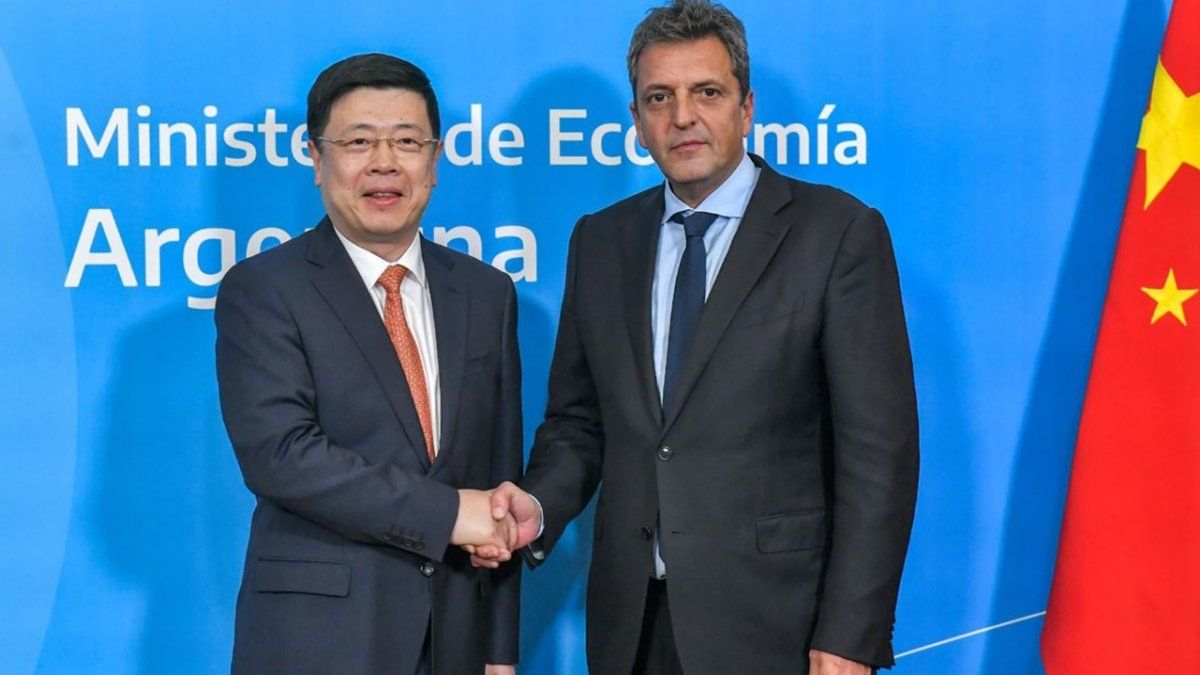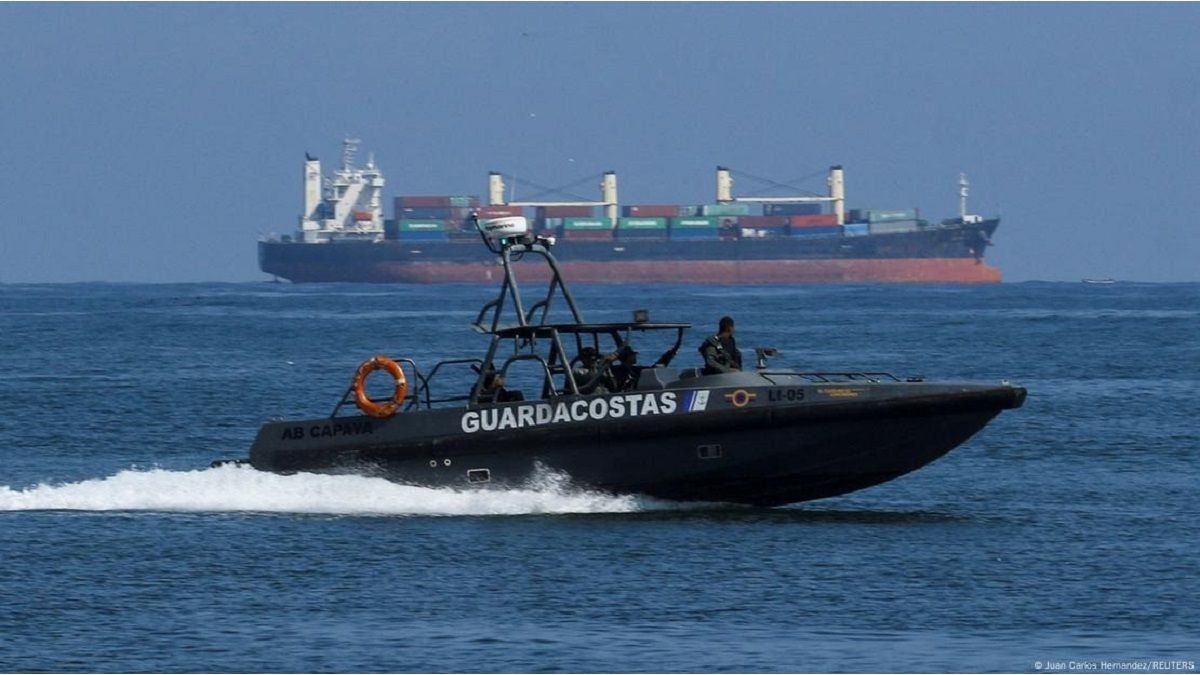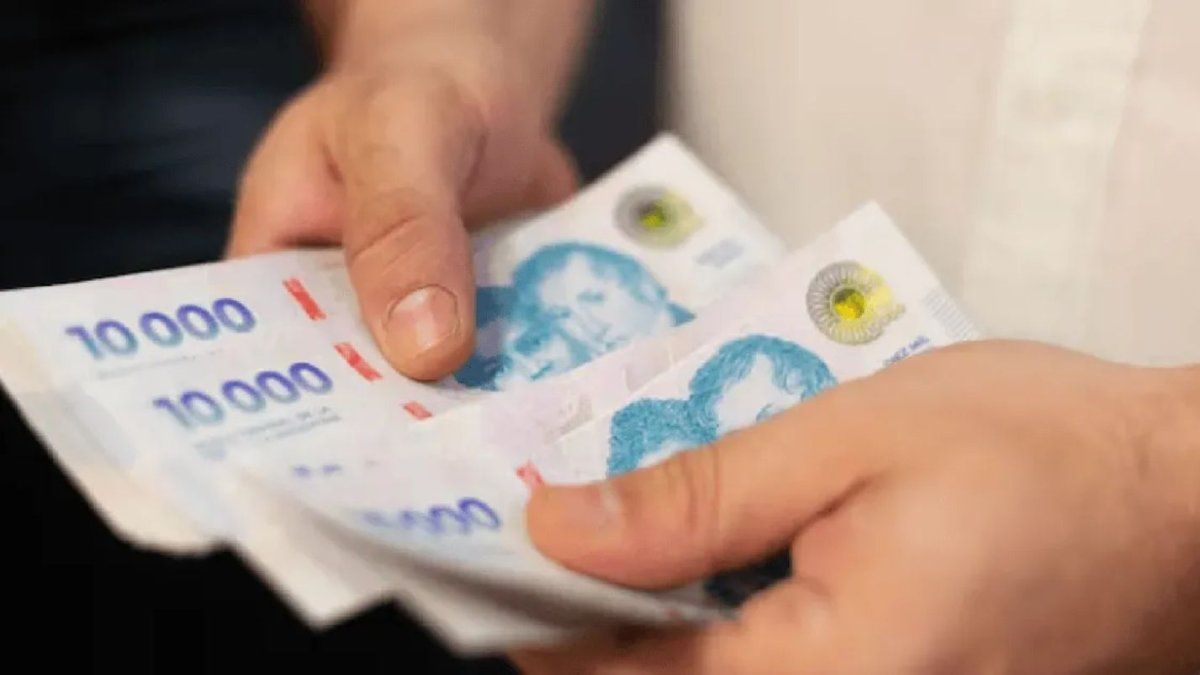The Minister of Economy, Sergio Massa, leaves for China today together with a delegation of officials and legislators, among them Máximo Kirchner, deputy and head of the Buenos Aires PJ, to participate in a meeting of the New Development Bank (NBD), the Brics’ financial institution, and to consolidate agreements that expand the use of the yuan provided by the swap for trade with the Asian giant and with Brazil.
The delegation headed by Massa will arrive this Tuesday in the city of Shanghai to maintain an intense agenda that will continue later in Beijing and that it foresees, together with theextension of the agreement that is already underway for the use of US$5,000 million of the approximate total of US$18,000 millionadd investments in power generation, mining and rail freight transportation.
What is the minister’s agenda in China?
A meeting with directors of the Chinese company Gezhouba Group Corporation (CGGC) to monitor the state of execution of the works of the Santa Cruz river dams, as well as announce the increase in Argentine exports in the area of meat and derivatives with the opening of new markets by the People’s Republic, reported diplomatic sources and of Economy.
The day will continue with a working meeting with the representatives of the power china company, that will have as a guiding thread a battery of projects related to the energy development of the country.
Who are part of the entourage that travels to China
In the entourage that leaves this Sunday afternoon will be Massa, his Transport partner, Diego Giuliano; the president of the BCRA, Miguel Pesce; the Deputy Chief of Staff Juan Manuel Olmos, the head of the Chamber of Deputies, Cecilia Moreau; the Secretaries of Energy and Agriculture, Flavia Royon and Juan José Bahillo, as well as the Secretary of Economic and Financial Affairs, Marco Lavagna.
With the presence of legislator Máximo Kirchner as a political fact, the entourage is completed by the head of the company Enarsa (Energía Argentina) Agustín Gerez; the undersecretary of International Financial Relations, Leandro Gorgal; and the also national deputies Paula Penacca (Front of All-CABA) and Diego Sartori (Front for Concord of Misiones).
During his six-day stay in two of China’s largest cities, Massa will hold meetings with the board of directors of the companies CET-State Grid Corporation, the largest electricity distributor in that country; Tibet Summit Resources (mining); Ganfeng Lithium, the largest lithium producer in China and the third largest in the world, and Tsinghan Holding Group (a steel and nickel producer).
Sergio Massa China.jpg
The objective of the succession of meetings is “to promote investments in different Argentine provinces linked to the development of mining,” reported from the Palacio de Hacienda.
Massa will also meet with various authorities of the Xi Jimping government and various government entities, among them the Minister of Finance, Liu Kun; his Trade peer, Wang Wentao; the Vice Minister of Customs, Wang Lingjun; the governor of the People’s Bank of China (PBoC), Yi Gang, with whom he will discuss the issue of renewing and expanding the currency swap with China.
Another relevant meeting on which expectations are placed, will be the one that Massa will maintain with the former president of Brazil and current head of the New Development Bank of the Brics, Dilma Rousseff: the appointment will be on Thursday in Shanghai.
The Silk Road
From the priorities of the Asian giant, a key moment of the visit will be the signing of the Belt and Road Cooperation Plan, which Massa will sign on behalf of the Argentine State together with the president of the National Development and Reform Commission, Zheng Shanjie. .
The Belt and Road Initiative, also known as the Silk Road, It is a commercial and financial project that Beijing considers strategic and which consists, among other things, in facilitating financing by Chinese banks for large-scale infrastructure works in different parts of the planet.
Argentina adhered to this Initiative together with dozens of countries around the world, and later formalized this adhesion with the publication in April 2022 of the Memorandum of Understanding in the Official Gazette, which among other objectives aims to promote the use of “national currencies”. in investment and bilateral trade.
How long will you be in China?
Between Tuesday, May 30, and Thursday, June 1, Massa will focus his activities in Shanghai, where he will meet with representatives of Chinese private and state companies and with Dilma Rousseff; From Friday the 2nd and until Saturday he will be dedicated to meetings with the representatives of the Chinese Government.
In Shanghai, the official delegation of Argentina will be received by the ambassador in that country, Sabino Vaca Narvaja, who in recent weeks has been preparing the visit of the head of the Palacio de Hacienda together with a large part of the economic management staff: The presence of Miguel Pesce is explained by the intention to deepen the swap of the Central Banks and expand the use of the yuan to avoid the reduction of reserves.
“Currently we are using the US$5,000 million available for commercial exchange with China. Now we are negotiating to expand that number of free availability, always within the general agreement of US$18,000 million,” anticipated sources from Economy.
This eventual expansion, given that the dollars are converted to yuan and the reserves do not drip, will be one of the issues that Massa will address with his Chinese peers during his visit to that country.
In this sense, Ambassador Vaca Narvaja affirmed that “by promoting investment and trade using the yuan”, the Asian giant “is consolidating itself as the first commercial partner” of Argentina.
Vaca Narvaja thus highlighted the commercial possibilities that were opened from the authorization of the use of the swap (currency exchange) to trade in yuan with China.
“The swap mechanism is key because it provides financing for productive investments in important sectors to balance the trade balance, such as mining and telecommunications, among others,” he said.
Source: Ambito




